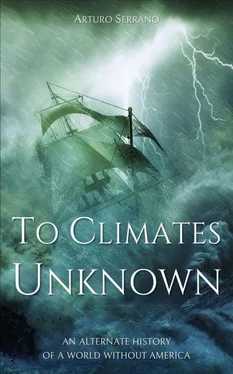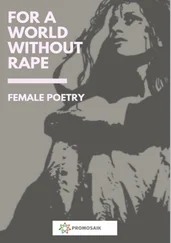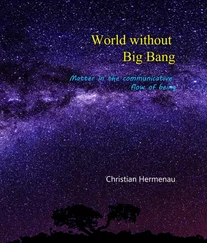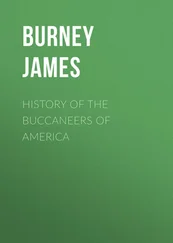“Why are you telling me this?” he pled.
The rector feared for the boy’s peace of mind, but the lesson still needed to be taught. “That Dominican monk used the story as part of a bigger point about fate. Even one of our Order, Molina, had already addressed that incident not long after its occurrence. His book on divine foreknowledge alludes to it. You ask what’s so odd about a king’s death; these men asked the same of a commoner’s. Why did God bother to smite this sailor? Could his undone deeds have offended Him? And that led to even deeper questions: do the futures that don’t happen exist? Does it even have a meaning to speak of events that can and yet will not be?”
René looked like he was mulling the same. “Anything that God foresees, must happen.”
“And still, the entire life He had foreseen in the future of this boy, He erased. So we discussed: does an erased event retain its reality in God’s mind? We reached no firmer conclusions than had been posed on the same topic years before, but I’m saying all this to you because it provides a great illustration of the importance of trusting God’s judgment. He always wills the best for His children, so His interventions in history always lead to the best of all outcomes. His infinite wisdom once deemed it best that an unimportant sailor should die, and we must believe that He found the same to be true for our beloved Henri.”
René remained silent. He was trying not to let his face show how horrified he was at Father Charlet’s suggestion that a boy’s death could be the best outcome. He lowered his head and muttered his thanks.
Father Charlet was not wholly convinced. “There is a right lesson to learn from this, but there is always also a wrong one. Guard your faith against fear of the future, for God will be watching over your life.” René thanked him again, and the rector appeared satisfied this time. “Good night, then. Do remember Henri in your prayers.” He imparted his blessing on the boy and left for his quarters, visibly pleased. He congratulated himself on how he had maneuvered the conversation.
René stayed in the playground with his thoughts, looking at his blurred shadow on the wet earth.
Midnight, November 10 (Gregorian), 1619
Neuburg an der Donau
Christendom was clawing at its own neck, and René du Perron, now Descartes, with only a stove heater to stay warm, was having a long and difficult night. A soldier in name only, he’d been spared the rigors of training and of battle; as he had very often in the past, he had secured exceptional treatment, been given the freedom sufficient to write and ample space for private reflection. He’d been studying the Book of the World by throwing himself between the pages, but the chain of thoughts of the past few hours was keeping his mind too busy to rest. It was as if his conscience had not been truly awake until that cold night, and he no longer found it in himself to stand amid the carnage of the world and not burst into tears every minute. He was already, by temperament, in disagreement with all things senseless, and the countless deaths in the service of a God whose preferences were silent offended every strand of his being. His entire life, since that conversation with Father Charlet all those years ago, had been obsessed with the thought of that boy who had drowned in the Thames for no reason. Now that he had witnessed war, it seemed that every fallen soldier was another child randomly thrown into the water by the inscrutable whim of Heaven. Trying to fall asleep made him feel guilt before those who would not awake anymore, and he wondered what dreams he’d be having instead, were that tale not lodged in his mind. Trembling with cold, his eyes fixed on the stove, he didn’t notice when his thoughts drifted.
He saw the flames fill the sky with their light and twist the fabric of the heavens, forcing everything into motion. The world was governed by the sun, and the sun answered to no one. Life grew in patient silence under its rays. The days were long, the nights were warm, the years were all equal. Time went on by a single rule. René didn’t know where the feeling came from that was screaming at him that everything was being wasted. The screams ended when the sun gave birth, and millions of hands held millions of little flames in them, and René was caressed by a wave of contentment that gently opened his eyes. He wrapped himself tighter and once again fell asleep.
His next dream was less pleasant. Now he felt enveloped in smoke, and the smoke weighed like a fist against his face, pushing him upward without respite, and he thought he could see in the distance a lake where perhaps he could hide, but as soon as he dove, he found the water boiling. The surface lit up, as if by a lamp, and he was hurled to the sky by a whirlwind that spun in both directions at the same time. He was in the middle of a storm and he dreaded the moment of lightning. But it never arrived; beneath the lake, tiny sparks tried to break free, as if the might of the storm had been tamed and held captive. All the sparks shone at once and the night was no more.
René woke up with a burning sensation lingering in his eyes. The back of his neck was tingling with goosebumps and the tips of his fingers were pierced by invisible needles. He sat up and breathed. His bed was right next to the stove, but he was shivering. He removed his blanket and felt it damp with his sweat. He stood up and walked to the door, hoping that the late autumn air would suffice to lull him back into sleep. He closed his eyes, leaned on the door, and welcomed the cold draft entering from beneath. It spread through his bones and became one with him. Plato had said that the atoms of fire were tetrahedrons, but when had he or anyone seen an atom? René imagined every fire atom in his body slowly shedding its heat, turning into something else. The vision filled his mind’s eye, and a sole, fixed idea took possession of him. Atoms disintegrated one after another, but what smaller parts could be conceived? He concentrated on the imprecise image of one atom of fire, losing all its heat until there remained… what could remain? What lay beneath the veil of substance? The atom in his mind’s eye had no clear geometry, and that bothered him to the point of despair. He saw yes and no dancing around each other, he saw an infinite chain of such couples dancing together, he saw the universe as a dance hall traversed by the faint reverberations of a long-forgotten melody, he saw the eternal sphere of heaven grow a crack that pulled the fixed stars apart, he saw the sky dotted with blinking lamps like a tapestry made of live fireflies, he saw the lights appear and fade and appear and fade and appear and fade, he saw the lights merging, he saw yes and no locked in a forbidden embrace, he saw the face of darkness mocking him in cruel laughter, and he heard the space inside his head crack with the sound of God’s foot stomping on the sins of mortals.
He was still leaning against the door, and the intensity of the sound he’d just heard shook him to his knees. He took air and looked around, intuiting that he ought to be looking for something, but not finding it. Meaning to run, he staggered back to the bed, unsure of the meaning of his visions. He forced himself to lie very still, to not risk another thought intruding into his consciousness. After some minutes of such effort, he was so exhausted that he forgot what he was trying to do and his mind collapsed into a heavy slumber. But anyone who would have sneaked into that room would still have seen the concern in his face. Even in sleep, he knew he would never be able to forget that night, and he knew he would try many times. It was the kind of experience that built a man, and he felt demolished, as if he were five times his age. The sound of the drizzle outside made the inside of his eyelids flash.
Читать дальше












